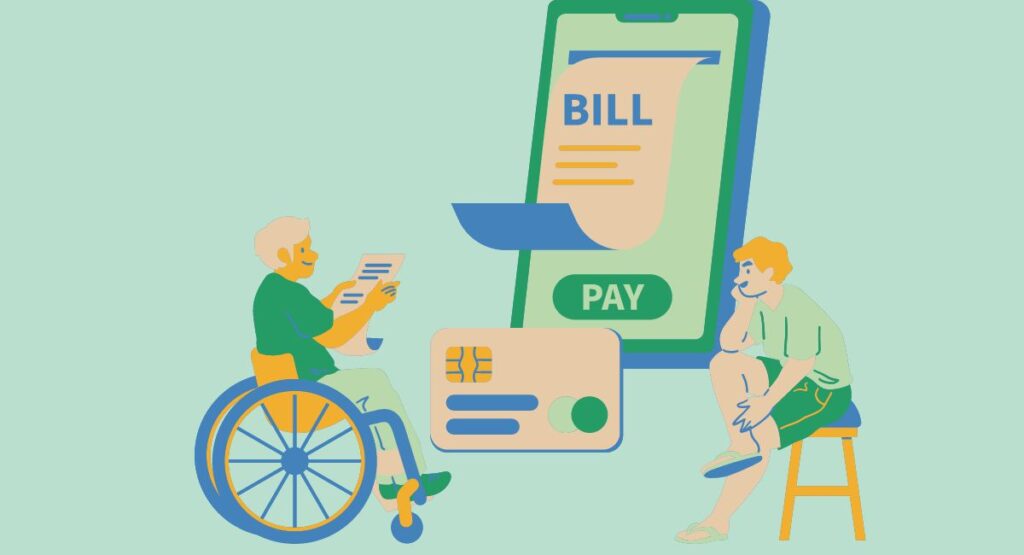Tips For Managing Money To Supercharge Financial Wellness
Money is a fundamental aspect of our lives, and it plays a crucial role in achieving our goals and maintaining our standard of living. Money management is the process of budgeting, saving, investing, and spending our money in a way that aligns with our values and long-term objectives.
Effective money management helps us to make the most of our resources, avoid financial stress, and plan for the future. Additionally, managing money well can help you reach your goals faster, whether buying a house, starting a business, or saving for retirement.

Overview of the topic of the blog: Tips for Managing Money
This blog is focused on providing readers with practical and actionable tips for managing money effectively. The blog will cover various topics, including setting financial goals, budgeting, saving money, investing, and managing credit and debt.
The goal is to provide you with the knowledge and tools they need to take control of their finances and create a more secure financial future. The blog will be written in an easy-to-understand format and include examples and case studies to make the information relatable. The blog will also have resources and additional readings for those who want to learn more about money management.
Setting Financial Goals
Setting financial goals is an essential step in effective money management. Having clear and specific financial goals gives you something to work towards and provides a sense of direction for your financial decisions.
Without financial goals, it is easy to become overwhelmed and make impulsive financial decisions that may not align with your long-term objectives. Setting financial goals also helps to increase motivation and accountability, making it more likely that you will take action toward achieving them.

Steps for setting practical financial goals
Identifying your current financial situation The first step in setting financial goals is to understand your current financial situation. This includes understanding your income, expenses, assets, and debts. This information will give you a clear picture of your current financial position and help you identify areas where you can improve.
Setting short-term and long-term goals Once you clearly understand your current financial situation, you can start setting financial goals. It’s essential to set both short-term and long-term goals. Short-term goals are those you can achieve within a year and help you progress toward your long-term goals. Long-term goals are those you want to accomplish over more than a year, including buying a house, saving for retirement, or starting a business.
Prioritizing your goals With a list of financial goals, you can prioritize them based on their importance to you. Prioritizing your goals will help you focus on the most important ones and ensure that your resources are directed toward achieving the goals that matter most to you. Creating a plan to achieve your goals With your financial goals identified and prioritized, the final step is to create a plan to achieve them.
This plan should include specific actions that you will take to achieve your goals and should consist of milestones to track your progress. It should also have a timeline for when you want to accomplish each goal. A clear plan will help keep you on track and motivated as you achieve your goals.
Budgeting – Tips For Managing Money
Budgeting is creating a plan for how you will spend your money. It is a vital tool for effective money management as it allows you to understand where your money is going, identify improvement areas, and ensure you stay within your means.
By creating a budget, you can ensure that you have enough money to cover your expenses, save for your future and achieve your financial goals. Additionally, budgeting helps you to be more mindful of your spending and can help you to avoid overspending, accumulating debt, and financial stress.

Steps for creating a budget
Identifying your income and expenses The first step in creating a budget is to identify your income and expenses. Your income includes the money that comes into your household, such as your salary, rental income, and other income sources. Expenses include everything you spend on, such as housing, food, transportation, and entertainment. Identifying your income and expenses will give you a clear picture of how much money you have coming in and going out each month.
Tracking your spending Once you have identified your income and expenses, the next step is to track your spending. This means keeping a record of all the money you spend during the month. This can be done by writing down your expenses in a notebook, using a budgeting app, or creating a spreadsheet. Tracking your spending will clearly help you understand where your money is going and help you identify areas where you may be overspending.
Identifying areas for improvement With your spending tracked, you can start identifying areas where you can improve your budget. This could be cutting back on unnecessary expenses, finding ways to save on essential expenses, or finding additional ways to increase your income.
The goal is to ensure that your expenses align with your income and you can save for your future and achieve your financial goals. Implementing a budget and sticking to it With your budget and areas for improvement identified, you can now implement it. This means putting your plan into action and sticking to it.
Implementing a budget can be challenging, but consistency and commitment to your plan are essential. It’s also important to regularly review your budget and make adjustments as needed. Sticking to a budget will help you to achieve your financial goals and avoid financial stress.

Saving Money
Saving money is an essential part of effective money management. It is vital to have a savings cushion for unexpected expenses and emergencies and for achieving long-term financial goals such as buying a house, saving for retirement, or paying for college.
Additionally, saving money can provide security and peace of mind. Without savings, individuals may rely on credit cards or loans to pay for unexpected expenses, which can lead to debt and financial stress.
Tips for saving money
Paying yourself first One of the most effective ways to save money is to “pay yourself first.” This means setting aside a certain amount of money from each paycheck before you pay any other bills or expenses.
This can be done by setting up a direct deposit into a savings account or physically transferring money into a savings account. Paying yourself first ensures you save for your future before spending money on other things.
Automating your savings Another effective way to save money is to automate your savings. This means setting automatic transfers from your checking account to your savings account.
This can be done at regular intervals, such as monthly or bi-weekly. Automating your savings takes the guesswork out of saving and helps ensure that you consistently put money into your savings account.
Finding ways to cut expenses Another way to save money is to find ways to cut expenses. This could be cutting back on unnecessary expenses, finding ways to save on essential expenses, or finding additional ways to increase your income. By cutting expenses, you can free up money that can be put into savings.
Setting a savings goal is an essential step in saving money. This could be short-term goals such as saving for a vacation or long-term goals such as buying a house.
Setting a savings goal will give you something to work towards and will help to keep you motivated. Additionally, setting a goal will help you determine how much money you need to save and help you prioritize your savings.

Investing – Tips For Managing Money
Investing is vital in managing money because it allows individuals to grow their wealth over time. Investing can increase an individual’s purchasing power and provide a source of income in retirement. Additionally, investing can be a way to earn a higher return on your money than if it were left in a savings account. It’s important to note that investing also carries risk, so it’s essential to understand the potential outcomes and make educated decisions.
Types of investments
Stocks: Stocks represent a share of ownership in a company. When you buy a stock, you are purchasing a small piece of the company and have the potential to earn a return through dividends or capital appreciation.
Bonds: Bonds are debt securities issued by companies or government entities. When you buy a bond, you lend money to the issuer, and they pay you interest in return.
Mutual funds: Mutual funds are a type of investment that pools money from multiple investors to purchase a diversified portfolio of stocks, bonds, or other securities.
Real estate investing involves buying, owning, and managing property to earn a return through rental income or capital appreciation. Real estate can be a more tangible and hands-on investment option, but it also comes with added responsibilities and costs, such as property maintenance and legal fees.
How to start investing
Educating yourself about investing: Before investing, you must educate yourself about the different types of investments and their potential risks and rewards. This can include researching other investment options, reading books or articles about investing, or speaking with a financial advisor.
Determining your risk tolerance: Determining your risk tolerance is vital because it will help you to decide which investments are appropriate for you. It’s important to understand that higher-risk investments have the potential for higher returns but also carry a greater chance of loss.
Finding an investment strategy that works for you: There are many different investment strategies, and it’s crucial to find one that works for you and your goals. This could include a long-term buy-and-hold strategy or a more active approach like day trading.
Start small and diversify your portfolio: When starting out, it’s best to start small and invest in a diversified portfolio of different types of investments. This will help to spread out the risk and increase the chances of earning a return. As your knowledge and experience grow, consider increasing your investment.

Credit and Debt Management
Credit and debt management is an essential aspect of personal finance because it can affect an individual’s ability to access credit and the cost of that credit. A good credit score can make qualifying for loans, credit cards, and rental agreements easier.
Additionally, managing debt effectively can help an individual avoid costly interest charges and late fees. On the other hand, poor credit and high debt levels can hurt an individual’s finances and overall well-being.
Tips for managing credit and debt
Understanding your credit score: A credit score is a three-digit number used to evaluate an individual’s creditworthiness. It is based on factors such as payment history, credit utilization, and the length of credit history. Understanding your credit score and what factors contribute to it can help you to improve it.
Paying off high-interest debt: High-interest debt, such as credit card debt, can be costly and take a long time to pay off. Prioritizing paying off high-interest debt can help to save money on interest charges and improve an individual’s credit score.
Building a good credit history: Building a good credit history involves consistently making payments on time and keeping credit utilization low. This can help to improve an individual’s credit score and make it easier to access credit in the future.
Understanding the terms of loans and credit cards: It’s necessary to understand the terms of loans and credit cards, such as interest rates, fees, and payment due dates. This helps avoid costly mistakes and ensures that payments are made on time.

Wrapping Up
The blog has discussed various money tips, including managing money, setting financial goals, budgeting, saving money, investing, and managing credit and debt.
The key takeaways from this blog post: include the importance of setting specific, measurable, achievable, realistic, and time-bound financial goals. Tracking your spending and finding ways to cut expenses, developing a savings goal, educating yourself about investing, determining your risk tolerance and starting small,
Diversifying your portfolio and understanding your credit score and terms of loans and credit cards.
Effective money management is essential for achieving financial goals, reducing stress, and improving overall well-being. Developing good money management habits takes time and effort, but the rewards are well worth it. We encourage readers to take action and start managing their money effectively today.
Many resources are available online, including books, articles, and courses for readers interested in managing money. Some popular personal finance websites include Mint, NerdWallet, and Dave Ramsey. Additionally, readers can find financial advisors, planners, and coaches who can provide personalized advice and support.







